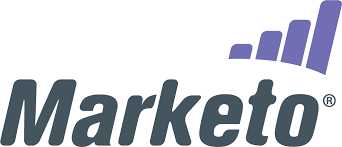Navigating the Shift from Shared to Dedicated Short Codes
Understanding the Shift from Shared to Dedicated Short Codes
Shared short codes have historically been popular due to their cost-effectiveness and convenience for multiple businesses to engage in SMS marketing under one number. However, this model has led to complications, including higher risks of spam and potential penalties from carriers if misuse occurs. As a result, carriers are increasingly phasing out shared short codes in favor of dedicated short codes, which are assigned to a single organization.
Dedicated short codes eliminate the risks associated with sharing, providing businesses with greater control over their messaging campaigns. They also enhance the ability to customize and brand messages, aligning more closely with corporate identity guidelines. This transition is crucial for maintaining compliance with evolving telecommunications standards and improving message deliverability. Understanding the reasons behind this shift helps businesses prepare for the necessary adjustments in their SMS marketing strategies.
Benefits of Switching to Dedicated Short Codes
The move to dedicated short codes brings several significant advantages. First, it greatly reduces the risk of being blacklisted by carriers due to the inappropriate actions of others, a common risk with shared short codes. Second, dedicated short codes offer superior customization and branding opportunities, allowing businesses to consistently use their unique code in marketing, which can improve customer recognition and trust.
Furthermore, dedicated short codes provide better analytics and tracking capabilities. Businesses can gain more accurate insights into the effectiveness of their SMS campaigns, such as which messages are performing best, how customers are interacting with them, and ways to improve future communications. This data is crucial for refining marketing strategies and achieving better engagement rates.
Compliance and Legal Considerations
Transitioning to a dedicated short code also involves navigating the legal and compliance aspects. With dedicated short codes, businesses must adhere to carrier-specific rules and regulations, including obtaining approval for the short code use, which can involve a detailed application process that includes demonstrating the intended use of the code and compliance with messaging laws like TCPA (Telephone Consumer Protection Act) in the U.S. Additionally, maintaining compliance involves setting up systems to manage opt-ins and opt-outs meticulously. This ensures that messages are only sent to users who have explicitly agreed to receive them, and that these preferences are respected in real-time, which is crucial for avoiding legal issues and maintaining a positive brand image.
Implementing Dedicated Short Codes
Implementing a dedicated short code requires careful planning and coordination. Businesses need to start by selecting a vendor that offers robust support for dedicated short codes, including assistance with the carrier approval process and technical integration. The selection of the actual number can be a strategic decision as well—businesses can choose a vanity code that spells a relevant word or a random numeric code based on availability and branding preferences.
Once the dedicated short code is secured, integrating it into existing marketing campaigns involves technical setup such as API integrations with marketing platforms, testing to ensure messages are delivered accurately, and training team members on best practices for SMS marketing. Businesses also need to establish monitoring and response systems to handle customer interactions efficiently, ensuring that the benefits of personalized communication are fully realized.
This comprehensive approach helps businesses not only comply with regulations but also capitalize on the marketing benefits of dedicated short codes, leading to more effective and secure customer engagements.
Take your marketing to the next level
Ready to get started?Schedule a Demo
Quick Links
Business SMS
SMS API Integration SMS for Business Communications Enterprise Texting Services Business SMS Shortcode Mass SMS Solutions Short Code TextingSMS Marketing
SMS Marketing Platforms SMS Marketing Services Call Center SMS Services SMS Buyers Guide Short Code SMS Solutions Short Code Messaging ComplianceTrueDialog powers Enterprise-Grade SMS Business Text Messaging for revenue teams to drive engagement across the customer lifecycle, and at scale. Founded in 2008, TrueDialog is a Communications-Platform-as-a-Service (CPaaS) company serving over 2,000 customers in North America that continues to innovate its messaging platform to ensure its leadership position in the industry. The technology is cloud-based and API-centric, powered by an ISO 9001 database and direct carrier connections to deliver 99.9% uptime. Customers use TrueDialog for text message marketing, mass text messaging campaigns, customer service text messaging, and employee communication.
TERMS OF USE | PRIVACY POLICY | WEB ACCESSIBILITY | © COPYRIGHT TRUEDIALOG
 Salesforce
Salesforce




